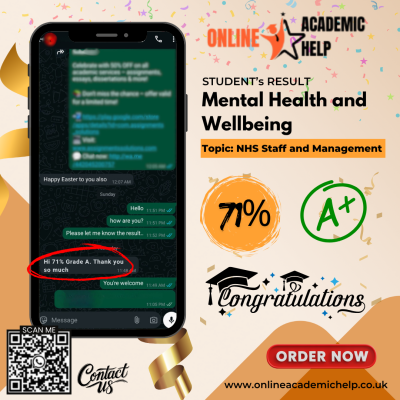Managing time effectively is one of the biggest challenges for students in the UK. With busy schedules full of lectures, assignments, part-time jobs, and social commitments, it is easy to feel overwhelmed. Without a strategy, many students end up procrastinating, cramming at the last minute, or missing deadlines. Student time management UK is not just about studying harder, but about studying smarter. It involves structuring your day, prioritising what matters most, and creating balance in both academic and personal life.
In this guide, we will provide a complete overview of how students in the UK can manage their time more effectively. We will compare traditional and modern strategies, outline actionable time management tips, and share insights on building habits that last. By the end, you will know how to transform chaotic days into productive, balanced ones.
Understanding Time Management for Students
Time management is the ability to plan, organize, and control how you spend the hours in your day. For students, it means creating enough time to study, finish coursework, prepare for exams, and still enjoy a social life.
Why Time Management is Crucial for UK Students
UK students often face heavy workloads with tight deadlines, independent learning requirements, and long essays. Without a proper system, many struggle with stress, lack of sleep, and poor academic outcomes. Effective time management ensures that you:
- Submit assignments on time.
- Stay ahead with revision and exam preparation.
- Have enough spare time to relax, work part-time, or engage in hobbies.
- Develop strong study skills that prepare you for professional careers.
The Role of Balance
It’s important to remember that managing time is not only about academics. A balanced schedule includes relaxation, social activities, exercise, and enough sleep. Too many students make the mistake of working endlessly, but studies show that incorporating regular breaks improves focus and memory retention.
Comparing Traditional vs Modern Time Management Approaches
Time management is the ability to plan, organize, and control how you spend the hours in your day. For students, it means creating enough time to study, finish coursework, prepare for exams, and still enjoy a social life.
Different generations of students have approached time differently.
-
Traditional Approach: Paper planners, diaries, and handwritten to-do lists. These work well for students who prefer tangible reminders and enjoy ticking off tasks.
- Modern Approach: Digital apps such as Notion, Trello, and Google Calendar. These allow setting notifications, organising deadlines by subject, and sharing group tasks.
Prioritise Tasks with the Eisenhower Matrix
This classic tool divides tasks into four categories:
- Urgent and Important (do immediately).
- Important but Not Urgent (schedule for later).
- Urgent but Not Important (delegate if possible).
- Neither Urgent nor Important (eliminate).
This prevents wasted time on low-value activities and ensures energy goes toward meaningful work.
Break Large Projects Into Manageable Chunks
Completing a dissertation or long essay can feel intimidating. Breaking it into manageable chunks (research, drafting, editing, proofreading) helps reduce stress. When work feels smaller, it’s easier to start.
Use the 25 Minutes Pomodoro Technique
One of the most effective methods for focus is the Pomodoro Technique. Students study for 25 minutes and then take a short break. After four rounds, they take a longer break. These regular breaks prevent fatigue and make learning more sustainable.
Create a Study Environment
A dedicated environment helps train your brain that it’s time to study. Whether it’s a quiet library corner or a desk at home, avoid distractions. To minimise distractions, silence notifications, use focus apps, and keep your study area tidy.
Study a Few Hours a Day, Not All at Once
Instead of cramming, commit to a few focused hours a day. Short but consistent daily sessions result in deeper understanding compared to marathon study sessions.
Top 10 Study Tips for UK Students
Here are the top 10 study tips every UK student can use:
- Start assignments early to avoid last-minute stress.
- Break tasks into manageable chunks.
- Use the Pomodoro Technique with 25 minutes sessions.
- Take regular breaks to refresh your brain.
- Plan hours a day for consistent studying.
- Revise weekly to reinforce knowledge.
- Create a study space free of distractions.
- Use a mix of digital and traditional planners.
- Balance work, academics, and social life.
- Reward yourself after completing tasks.
Managing Part-Time Work with Studies
Many UK students work part-time to cover living expenses. While valuable, jobs can reduce time to study.
Comparing Work Options
- On-Campus Jobs: Convenient, flexible hours, less travel.
- Off-Campus Jobs: Better pay, but require commuting.
- Freelancing/Remote Jobs: Flexible, but require self-discipline.
The best option depends on workload and how much spare time a student wants outside of classes.
Using Tools to Enhance Time Management
Digital Planners
Apps such as Google Calendar, Notion, and Trello allow scheduling, reminders, and visual tracking.
Pomodoro Apps
Timer apps help students keep to 25 minutes study intervals followed by regular breaks.
Task Tracking
Monitoring how many hours a day you actually study can reveal if you are underestimating or overestimating effort.
Benefits of Effective Time Management
Students who manage time well experience:
- Reduced stress and anxiety.
- Improved grades through effective studying.
- More consistent sleep patterns.
- A balance between social life and academics.
- Career-ready skills like organisation and responsibility.
Common Challenges and How to Overcome Them
Procrastination
Beat procrastination by breaking tasks into manageable chunks and starting small.
Overcommitment
Don’t overload your calendar. Prioritise essentials first, and save spare time for relaxation.
Poor Planning
A lack of planning wastes valuable study hours. Using planners ensures you know what task to do next.
Frequently Asked Questions (FAQ)
How can I improve student time management UK skills?
SPlan tasks, take regular breaks, break work into manageable chunks, and study a few hours a day consistently.
What are the best study tips UK students can follow?
Follow the top 10 study tips, including using Pomodoro sessions of 25 minutes, creating a study space, and minimising distractions.
Can part-time jobs affect my studies?
Yes, but flexible jobs or on-campus roles allow students to maintain enough time to study.
How do I make effective use of spare time?
Use spare time for light revision, reading, or reviewing case studies instead of wasting it on distractions..
Should I study for long hours or short sessions?
Short sessions of a few hours a day, broken into manageable chunks, are more effective than long cramming sessions.












